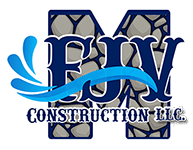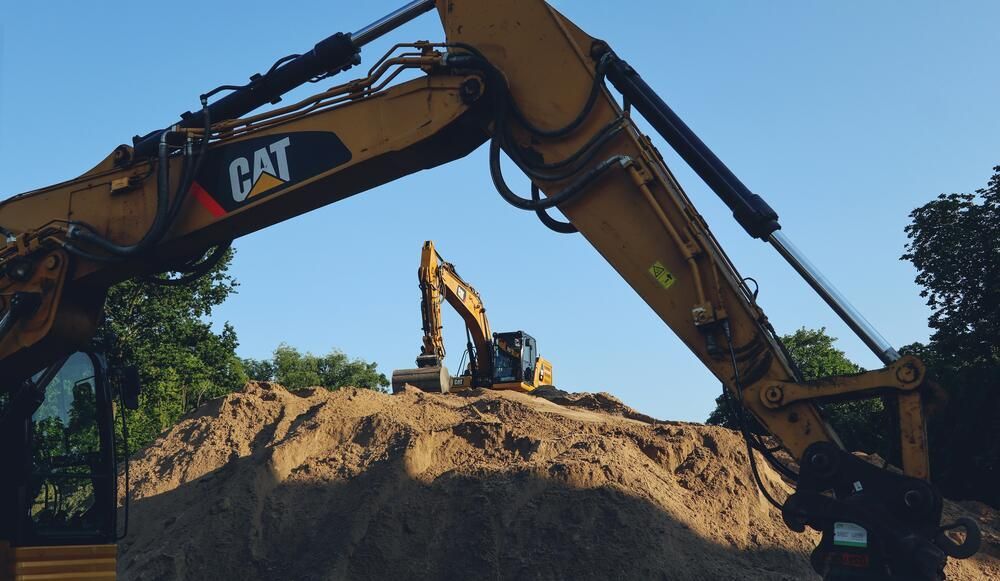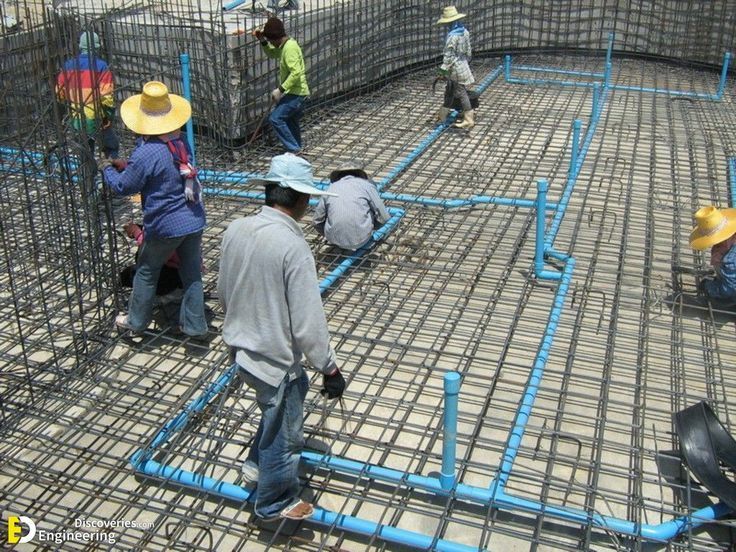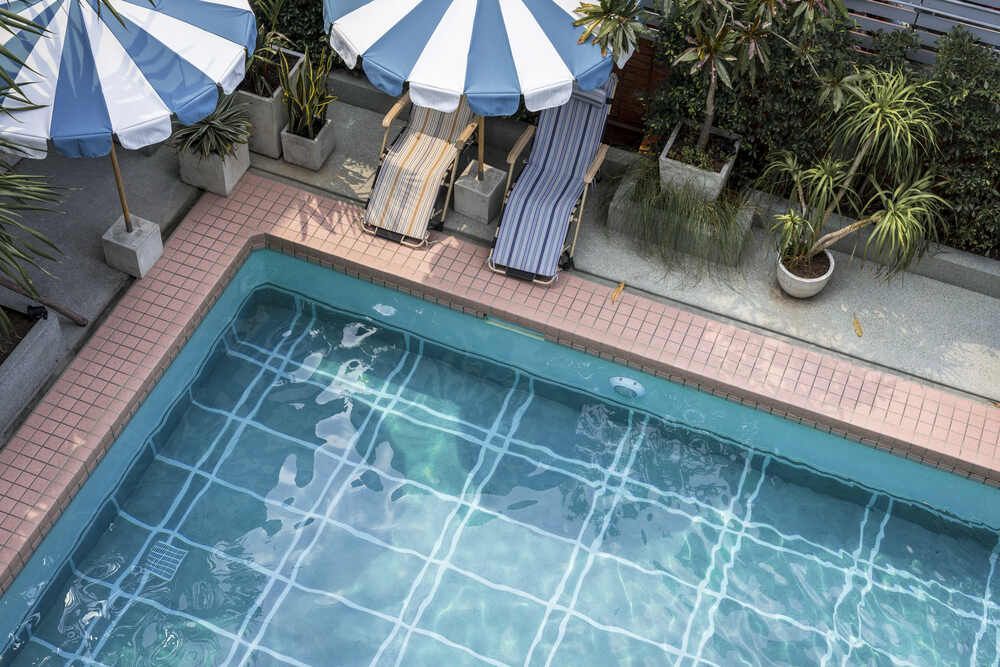7 Facts About Pool Filtration Systems — Straight from Your Local Pool Contractors
Keeping your pool crystal clear often feels like an ongoing battle against dirt, debris, and algae. The key to winning this battle lies in understanding and optimizing your pool's filtration system. That's where pool contractors in Bethel, CT, come in. To get you started, here are facts about pool filtration systems to help you achieve top-quality pool water.
1. Size Matters
Proper sizing of a pool filtration system is crucial for its efficiency and effectiveness. Pool contractors in Bethel, CT, consider several factors when determining the right size for a system.
Determining the Right Size
- Pool Siz: Larger pools require larger filtration systems to handle the volume of water effectively. Pool contractors meticulously calculate the surface area and depth of the pool to determine the appropriate system size.
- eBather Loa: Pools with higher usage rates require filtration systems to remove undesirable contents in the water. Pool contractors assess the frequency and number of swimmers to ensure the filtration system can maintain water clarity and cleanliness.
- dEnvironmental Factor: Pools located near trees or in areas with high levels of dust and debris may require larger filtration systems to cope with additional contaminants. Pool contractors evaluate the surrounding environment to anticipate potential debris sources and size the filtration system accordingly.
Factors Influencing System Size
- Flow Rat: The flow rate of a filtration system determines how quickly it can cycle water through the filter. Higher flow rates are necessary for larger pools or pools with higher bather loads. Pool contractors select pumps with appropriate flow rates to ensure efficient water circulation and filtration.
- eFilter Capacit: The filter's capacity determines how much debris and contaminants it can hold before needing to be cleaned or replaced. Larger filters are required for larger pools or pools with higher usage rates. To minimize maintenance requirements, contractors carefully match the filter capacity to the pool size and usage patterns.
- Pump Size: The pump size affects the filtration system's flow rate. Pool contractors must ensure the pump is appropriately sized to match the filter and pool size. They select pumps with the right horsepower and flow rates to optimize filtration performance while minimizing energy consumption.

2. Maintenance is Key
Regular maintenance is essential for ensuring a pool filtration system's optimal performance and longevity. Pool contractors emphasize the importance of proactive maintenance to keep the system running smoothly and effectively.
Why Regular Maintenance Matters
- Preserving Water Quality: Regular maintenance tasks such as cleaning the filter and adjusting chemical levels help maintain balanced water chemistry, preventing algae growth and bacteria proliferation.
- Preventing Equipment Damage: Routine maintenance tasks such as inspecting and lubricating pump components and checking for leaks can help identify potential issues before they escalate into costly repairs. Pool contractors conduct thorough inspections to detect and address minor problems early.
- Optimizing Efficiency: Clean filters and properly functioning equipment contribute to the overall efficiency of the filtration system, which reduces energy consumption and operating costs.
Common Maintenance Tasks
- Filter Cleaning: Regular filter cleaning removes debris and contaminants trapped within the filtration media. Pool contractors recommend periodic backwashing or cartridge cleaning to maintain optimal filtration efficiency and water clarity.
- Pump Inspection: Checking pump operation and performance is critical for ensuring proper water circulation and filtration. Pool contractors inspect pump components such as impellers, seals, and motors for signs of wear or damage.
- Chemical Monitoring: Regularly monitoring and adjusting chemical levels is essential for maintaining balanced water chemistry. Pool contractors perform water tests and recommend appropriate chemical adjustments to ensure a safe and sanitary swimming environment.
Tips for Maintenance from Pool Contractors
- Establishing a Schedule: Pool contractors help homeowners establish a regular maintenance schedule tailored to their pool's specific needs and usage patterns. They guide the frequency and timing of maintenance tasks to ensure consistent upkeep of the filtration system.
- Investing in Professional Services: While homeowners can perform some maintenance tasks themselves, pool contractors recommend investing in professional services for more complex tasks or periodic inspections. Professional maintenance services help ensure thorough upkeep of the filtration system.
- Documenting Maintenance History: Keeping detailed records of maintenance activities and equipment servicing is essential for tracking system performance and identifying trends over time. Pool contractors can assist homeowners in maintaining accurate maintenance records and provide recommendations based on historical data.
3. Energy Efficiency
Energy-efficient pool filtration systems can help homeowners save on electricity costs while reducing their environmental footprint. Pool contractors can select and install energy-efficient components to optimize system performance and minimize energy consumption.
Importance of Energy-Efficient Systems
- Cost Savings: Energy-efficient pool filtration systems consume less electricity, resulting in lower utility bills for homeowners. There are also potential long-term cost savings associated with energy-efficient pumps and filters.
- Environmental Impact: Energy-efficient systems reduce energy consumption, which leads to lower greenhouse gas emissions and environmental impact. Sustainability is crucial for energy-efficient pool equipment.
- Regulatory Compliance: Many regions have regulations and standards to promote energy efficiency and environmental conservation. Pool contractors ensure that the filtration systems they install comply with these regulations to ensure legal adherence.
Energy-Efficient Pump and Filter Options
- Variable Speed Pumps: Variable speed pumps allow homeowners to adjust the speed of the pump motor to match their pool's specific needs. Pool contractors recommend variable speed pumps for their ability to operate at lower speeds, which reduces energy consumption without sacrificing performance.
- High-Efficiency Filters: High-efficiency filters trap smaller particles and contaminants while maintaining optimal flow rates. Pool contractors select filters with high MERV (Minimum Efficiency Reporting Value) ratings to maximize filtration efficiency and minimize energy usage.
Selecting and Installing Energy-Efficient Components
- Proper Installation: Proper installation is crucial for maximizing the energy efficiency of pool filtration systems. Pool contractors ensure energy-efficient components are installed correctly and according to manufacturer specifications.
- Performance Monitoring: Pool contractors monitor the performance of energy-efficient filtration systems to ensure they are operating at peak efficiency. They provide ongoing support and maintenance to address any issues that may arise and optimize energy savings over time.

4. Proper Installation is Crucial
Proper installation is crucial for the effectiveness and longevity of a pool filtration system. Pool contractors have the expertise and experience to ensure all components are installed correctly and according to manufacturer specifications.
Role of Pool Contractors in Installation
- Expertise and Experience: Pool contractors have extensive knowledge and experience in installing pool filtration systems. They understand the intricacies of system components and know how to integrate them properly into the pool environment.
- Compliance: Pool contractors ensure that installations comply with industry standards and regulations. They adhere to local building codes and safety guidelines to ensure the safety and integrity of the filtration system.
- Quality Assurance: Pool contractors prioritize quality assurance throughout the installation process. They conduct thorough inspections and tests to verify the functionality and performance of the filtration system, providing homeowners with peace of mind and confidence in their investment.
Common Installation Mistakes
- Improper Sizing: Installing undersized or oversized components can lead to inefficiencies and performance issues. Pool contractors carefully calculate each component's required size and capacity to ensure optimal system operation.
- Incorrect Plumbing: Poorly designed or installed plumbing can impede water flow and reduce filtration efficiency. Pool contractors meticulously plan and execute plumbing layouts to minimize resistance and maximize flow rates.
- Inadequate Placement: Incorrect placement of system components can affect their performance and accessibility. Pool contractors strategically position equipment to optimize functionality and facilitate maintenance and servicing.
POOL ANATOMY and PLUMBING For Beginners (Step-By-Step Walkthrough) | Swim University
5. Water Quality Improvement
Pool filtration systems improve water quality by removing dirt, debris, and contaminants. Pool contractors emphasize the importance of maintaining clean and healthy pool water for swimmers' safety and enjoyment.
Contribution to Water Quality
- Contaminant Removal: Pool filtration systems effectively remove various contaminants, including dirt, leaves, insects, and organic matter, from the water. Pool contractors prioritize filtration system efficiency to remove contaminants and maintain water clarity thoroughly.
- Bacteria and Algae Control: Filtration systems help control bacteria and algae growth by removing organic materials that serve as nutrients. Pool contractors implement preventive measures and recommend supplementary sanitization methods to enhance water quality further.
- Proper Chemical Balance: Proper water chemistry is essential for achieving and maintaining optimal water quality. Pool contractors conduct regular water tests and recommend appropriate chemical adjustments to ensure balanced pH, alkalinity, and sanitizer levels.
Contaminant Removal
- Mechanical Filtration: Mechanical filtration removes particles and debris from the water as they pass through the filter media. High-rate sand filters utilize a large tank constructed from fiberglass, concrete, or metal, housing a dense bed of specialized sand with a square shape.
- Skimming and Vacuuming: Skimming and vacuuming are essential maintenance tasks that help remove surface debris and sediment from the pool. Pool contractors recommend regular skimming and vacuuming to prevent debris buildup.
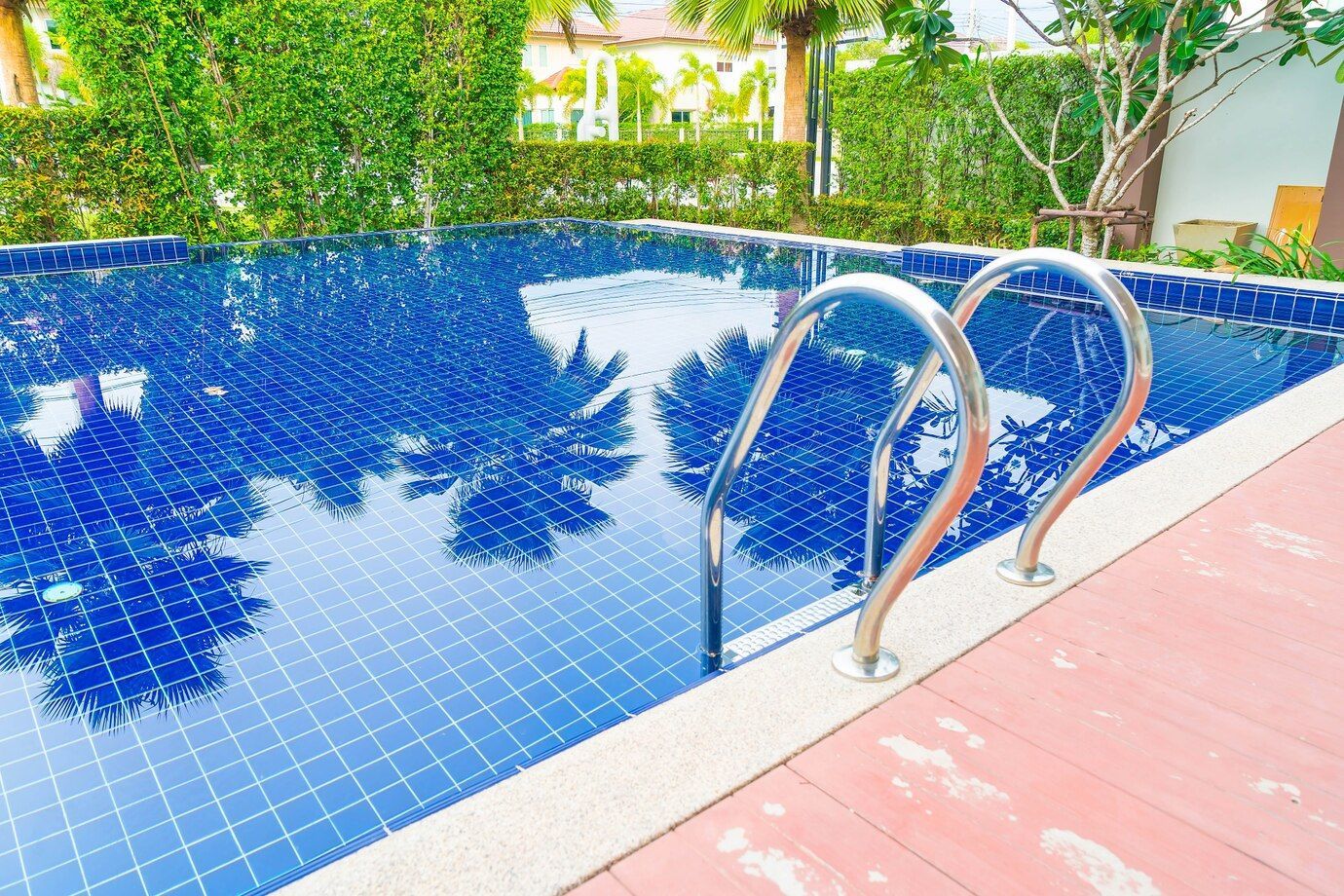
6. Customization Options
Pool filtration systems offer a range of customization options to meet homeowners' specific needs and preferences. Pool contractors provide expertise and guidance in selecting and implementing customized solutions to optimize system performance and enhance user experience.
Benefits of Automation
- Convenience: Automated pool filtration systems streamline maintenance tasks and enhance convenience for homeowners. Pool contractors recommend automation solutions such as automatic timers, cleaners, and chemical dispensers to simplify pool care routines and minimize manual intervention.
- Remote Monitoring: Some automation systems offer remote monitoring capabilities, allowing homeowners to monitor and control their pool's filtration system from anywhere using a smartphone or tablet. Pool contractors help homeowners set up and configure remote monitoring features for convenience and peace of mind.
Supplementary Sanitization Methods
- Enhanced Water Quality: Supplementary sanitization methods such as UV sterilization and ozone treatment provide additional protection against bacteria and algae growth. Pool contractors recommend these methods to homeowners looking further to improve the cleanliness and safety of their pool water.
- Compatibility: Supplementary sanitization methods can be integrated with existing filtration systems to provide comprehensive water treatment solutions. Pool contractors assess the compatibility of different sanitization methods with the existing equipment and recommend appropriate integration options.
7. Upgrading and Retrofitting
Homeowners may consider upgrading or retrofitting their existing pool filtration systems to improve efficiency, performance, and convenience. Pool contractors offer expertise and guidance in evaluating upgrade options and implementing solutions that meet homeowners' needs and budgetary constraints.
When to Consider Upgrading
- Outdated Equipment: Aging pool filtration equipment may become less efficient and more prone to breakdowns. Pool contractors recommend upgrading outdated equipment to take advantage of technological advancements and improve system performance.
- Changing Needs: Changes in pool usage patterns or environmental conditions may necessitate upgrades to existing filtration systems. Pool contractors assess homeowners' evolving needs and recommend upgrades that enhance system capabilities and meet current requirements.
Benefits of Upgrading
- Improved Efficiency: Upgrading to newer, more efficient filtration equipment can save energy and reduce operating costs. Pool contractors help homeowners select energy-efficient pumps and filters that optimize system performance.
- Enhanced Performance: Upgraded filtration systems offer improved efficiency and water quality, providing homeowners with cleaner, clearer pool water and a more enjoyable swimming experience.
Advice from Pool Contractors on Upgrading vs. Replacement
- Cost Considerations: Pool contractors assess the cost-effectiveness of upgrading existing equipment versus replacing it entirely. They consider equipment age, condition, and repair costs to determine the most economical solution for homeowners.
- Compatibility: Pool contractors evaluate the compatibility of existing equipment with potential upgrades to ensure seamless integration and optimal system performance. They recommend upgrades compatible with the existing infrastructure and provide long-term benefits.
- Long-Term Planning: Pool contractors help homeowners develop long-term plans for maintaining and upgrading their pool filtration systems. They offer guidance on prioritizing upgrades, budgeting for future investments, and maximizing the lifespan of existing equipment.
Frequently Asked Questions (FAQs)
Can I install a pool filtration system or hire a pool contractor?
While some homeowners may attempt to install pool filtration systems themselves, hiring a professional pool contractor for installation is generally recommended. Pool contractors have the expertise and experience to ensure the system is installed correctly and according to manufacturer specifications. This helps minimize the risk of issues and ensures optimal performance.
What signs indicate my pool filtration system needs an upgrade or replacement?
Signs that indicate it's time to upgrade or replace a pool filtration system include reduced water clarity, frequent pump or filter malfunctions, increased energy consumption, and difficulty maintaining proper water chemistry despite regular maintenance efforts. Additionally, if the system is outdated or no longer meets the homeowner's needs, it may be time for an upgrade or replacement.
How often should I backwash my pool filter, and is it something I can do myself?
The frequency of backwashing a pool filter depends on factors such as pool usage, water quality, and the type of filter. As a general guideline, it's recommended to backwash a sand filter when the filter pressure increases by 7-10 psi above the normal operating pressure. Cartridge filters should be cleaned when the pressure gauge reads 8-10 psi above the clean pressure. Backwashing is a task that homeowners can typically perform themselves with proper instruction and supervision from a pool contractor.
Are there any government incentives for installing energy-efficient pool filtration systems?
Government agencies or utility companies in some regions offer incentives or rebates for installing energy-efficient pool equipment, including filtration systems. These incentives may come in tax credits, rebates, or other financial incentives to promote energy conservation and reduce environmental impact. Homeowners should check with their local authorities or utility providers to determine if any incentives are available.
What maintenance tasks should I perform during the offseason?
During the offseason, homeowners should winterize their pool filtration system to protect it from freezing temperatures and harsh weather conditions. This may include draining the pump and filter, blowing out water from the plumbing lines, and covering the pool to prevent debris buildup. Additionally, performing a thorough inspection of the system and addressing any maintenance issues before closing the pool for the season can help ensure it remains in good condition during the offseason.
Transform Your Home with FJV Construction - Bethel CT — Contact Us Today!
Choosing the right team to bring these facts into action in your backyard is paramount. This is where
FJV Construction - Bethel CT, your local pool contractor specialists, steps in. With a steadfast commitment to quality, innovation, and customer satisfaction,
FJV Construction - Bethel CT stands ready to transform your pool filtration system dreams into reality.
Contact us today, and let the clarity of your pool reflect the quality of our work!
Our Info
Monday to Friday from 7 am to 6 pm
Saturdays from 8 am to 5 pm
We Accept Cash and Checks
LOCATION
We Cover 80 Miles around Bethel,
Danbury, and Brookfield
Bethel, Connecticut 06801
Danbury, Connecticut 06810
Brookfield, Connecticut 06804
Navigation
Copyright FJV Construction, All Rights Reserved
